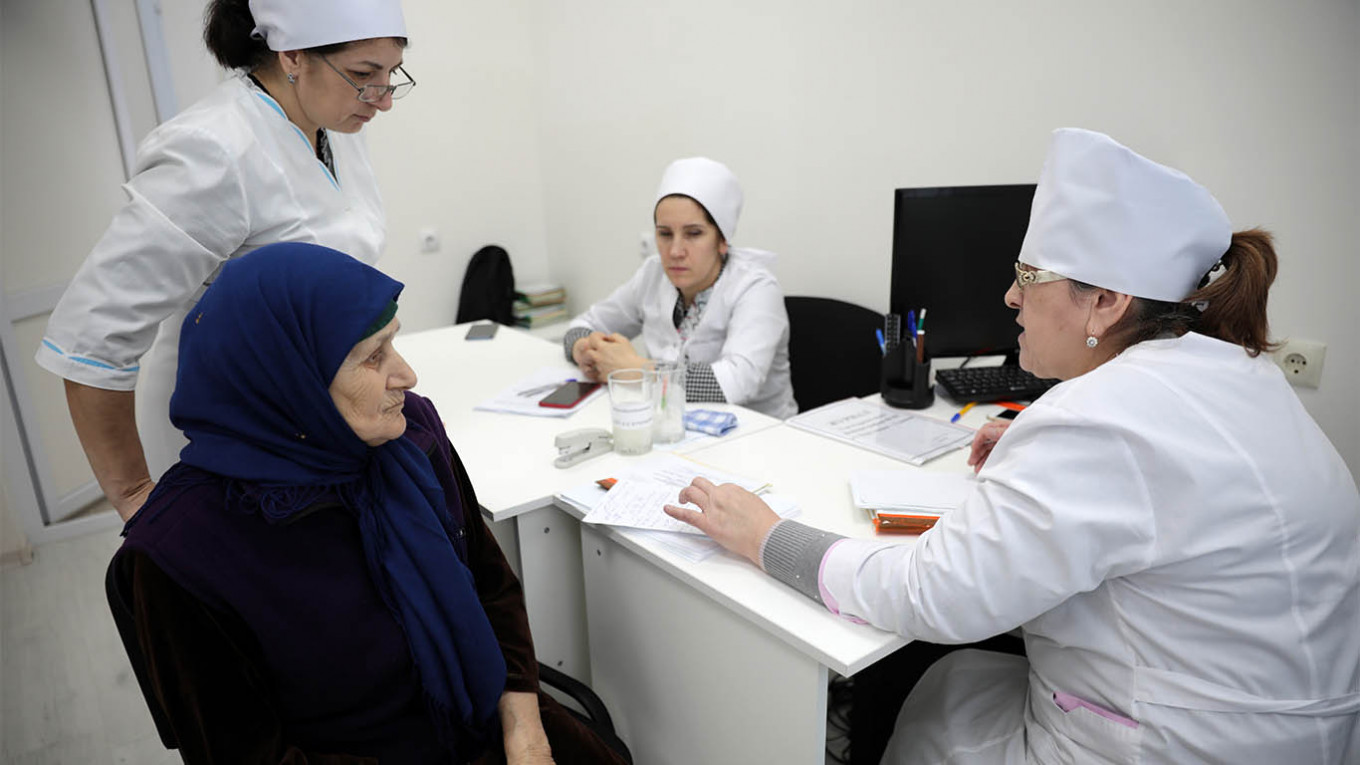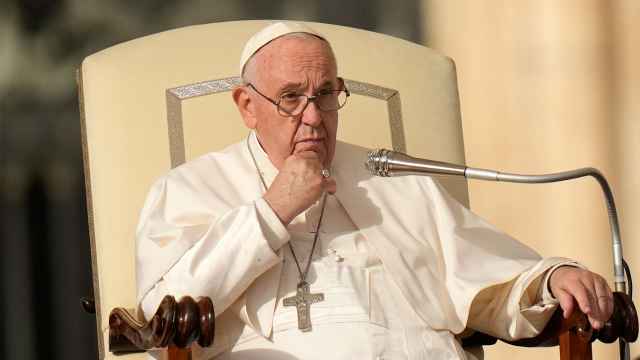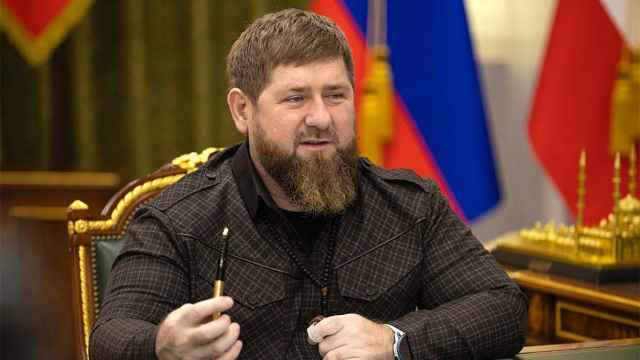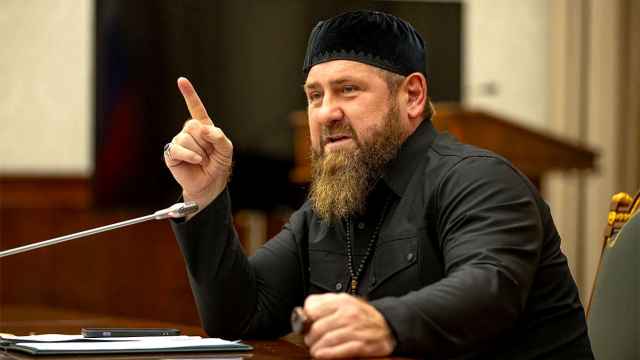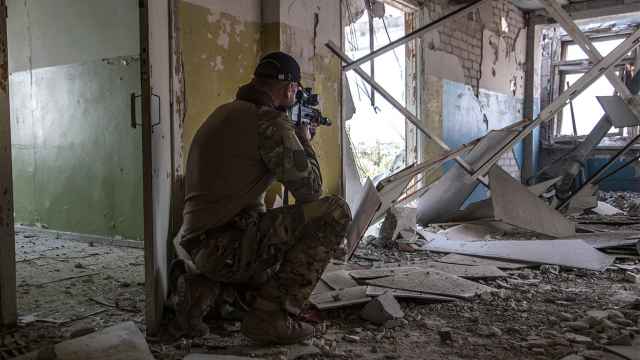“Don’t leave the house without a mask or gloves!” shouts a voice from the top of the minaret, captured in a now-viral video “Only to a shop, a pharmacy, only if necessary! We’re warning you! Don’t go around saying you didn’t know! You’ll be punished and fined!”
This bizarre announcement in broken Russian booming from a mosque sums up the republic of Chechnya’s approach to the impending threat of the coronavirus — it orders people to wear protective equipment that’s hard to get and threatens repercussions without actually explaining what is going on.
On March 29, Chechen leader Ramzan Kadyrov declared a republic-wide quarantine, calling on people to stay at home. Despite the fact that a coronavirus response body was set up as early as February 6, little had been done to prepare the republic for a possible outbreak.
Kadyrov dismissed the threat of the pandemic, comparing it to a flu, and suggested treating it with lemon, honey and prayers. Once cases in Chechnya began to rise exponentially, with the first death declared on 1 April, he tightened quarantine measures.
The Chechen strongman imposed a curfew, familiar to the population from wartime, and banned any vehicles from entering or leaving Chechnya from April 5. The lockdown is already having a devastating effect on farmers, who rely heavily on exports to neighboring republics.
Once the quarantine was introduced, the government began to enforce it the only way it knew how — with threats and violence. Social media exploded with videos of Chechen policemen enforcing the lockdown with white plastic pipes in their hands, cleverly montaged to show them marching in groups to the Imperial March from “Star Wars.”
There have been reports of people beaten up for not wearing masks and gloves, items that are mostly sold out across the republic. And it’s not just pharmacies that are under equipped — hospitals are also suffering from severe shortages of masks, testing kits and ventilators.
As recently as mid-March, people participated in public prayers and took part in mandatory subbotniki — or street cleaning operations. Since it takes up to two weeks for coronavirus symptoms to show, Chechnya might soon be facing a dramatic spike in the number of cases.
In his latest address to citizens, President Vladimir Putin essentially allocated responsibility for tackling the pandemic to regional governors, and extended the ‘non-working period’ until the end of April.
Kadyrov is using every form of communication to urge everyone to stay at home without spelling out how he’s going to help the local economy to stay afloat. A rent freeze has not been announced, pushing many businesses to the verge of bankruptcy.
In normal times business owners have to pay an additional unofficial levy to Kadyrov’s associates on top of their taxes. It’s hard to imagine that government officials will be in a rush to sell off their undeclared mansions and expensive cars in a bid to bail out citizens.
Sooner or later, Kadyrov will come to the realization that the coronavirus cannot be beaten out of Chechnya with plastic pipes. Serious interventions will be required to help families survive. He might be hoping that the virus will magically disappear at the end of April, but strained health services and an economic recession look like an inevitability. This is another test for Kadyrov, although if he fails he’s unlikely to face any consequences.
Meanwhile, the video from the mosque has been used in several memes. In one the announcement plays over post-apocalyptic scenes from a sci-fi movie; in another, it comes from the mouth of Batman villain Bane. Unable to protest openly, Chechens use humour as their coping mechanism, something that has helped sustain their spirits throughout their turbulent history.
A Message from The Moscow Times:
Dear readers,
We are facing unprecedented challenges. Russia's Prosecutor General's Office has designated The Moscow Times as an "undesirable" organization, criminalizing our work and putting our staff at risk of prosecution. This follows our earlier unjust labeling as a "foreign agent."
These actions are direct attempts to silence independent journalism in Russia. The authorities claim our work "discredits the decisions of the Russian leadership." We see things differently: we strive to provide accurate, unbiased reporting on Russia.
We, the journalists of The Moscow Times, refuse to be silenced. But to continue our work, we need your help.
Your support, no matter how small, makes a world of difference. If you can, please support us monthly starting from just $2. It's quick to set up, and every contribution makes a significant impact.
By supporting The Moscow Times, you're defending open, independent journalism in the face of repression. Thank you for standing with us.
Remind me later.



